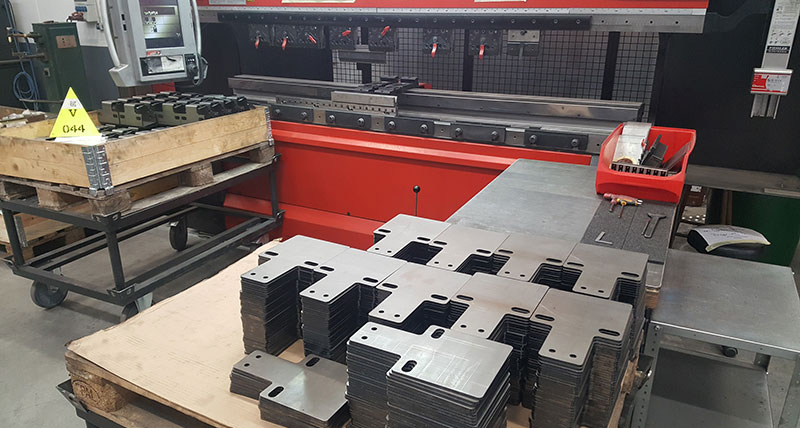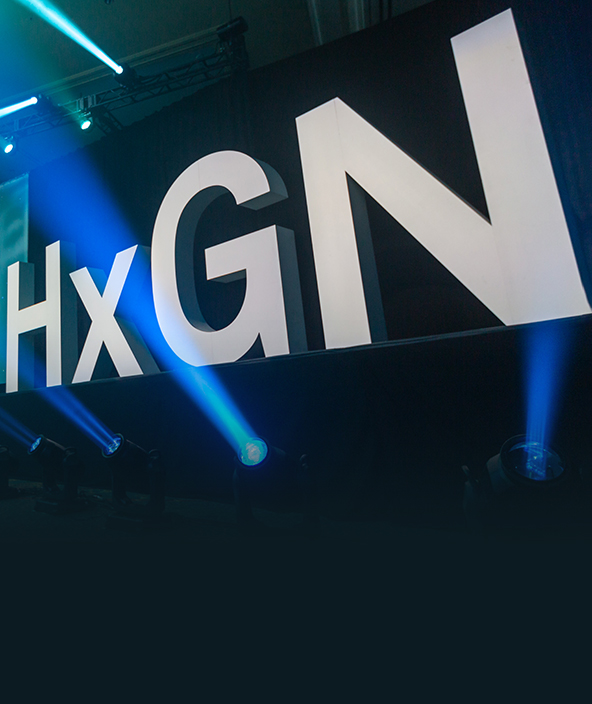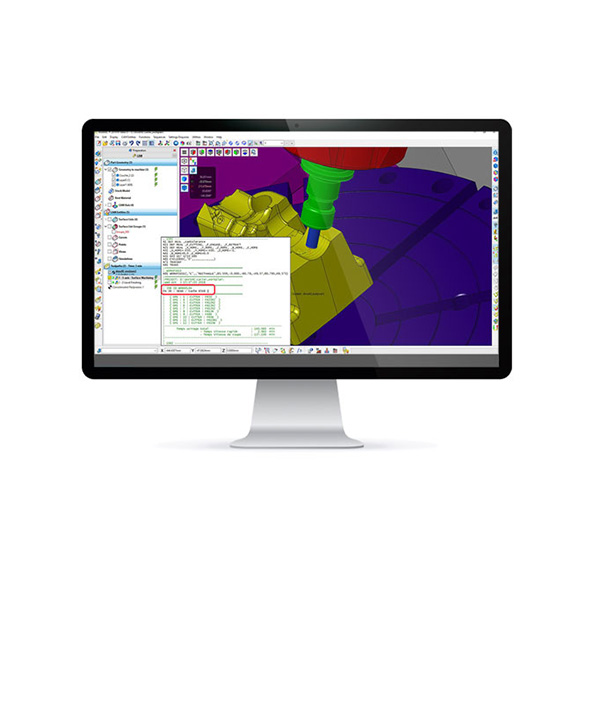Procuring sheet metal parts efficiently with RADAN based web shop
Digitised system helps Trio Metall adapt after orders drop due to COVID-19
Contact us

A contract producer of sheet metal components says its web shop played a major role in helping the business compensate for a downturn in automotive and mechanical engineering orders caused by the COVID-19 pandemic.
Based at Luhe-Wildenau, in Bavaria, Trio Metall und Design GmbH provides a complete sheet metal service from consulting, designing and planning, to manufacturing ‘ready-for-assembly’ components, ranging from single parts and small runs, right through to large quantities. Using the latest laser technology programmed by the powerful RADAN CAD/CAM software from Hexagon Manufacturing Intelligence, they also work with non-ferrous metals such as copper, brass and titanium.
Developed around RADAN, Trio Metall’s web shop portal gives customers access 24 hours a day to request components, be provided with an offer and place the order. After going live in September 2019, around 500 orders worth more than 500,000-Euro were placed through the ‘Trionline 24’ web shop in its first year.
The system was implemented by RADAN’s German reseller, 3D Concepts, and delivers orders digitally to Trio Metall’s ERP system, which transfers them to RADAN’s Ordermanager MRP module for production processing. Completed orders are passed back from MRP to ERP, triggering the subsequent processes for shipping and invoicing.
This means that horizontal logistics are now digitally mapped, as well as the vertical manufacturing operations.
Thomas Menholz, from 3D Concepts, says web shops are part of an overall digital strategy involving building blocks such as RADAN CAD/CAM, MES, MRP and ERP all coming together in an SQL-based system to form a data-driven Smart factory.
Trio’s Key Account Manager, Christian Weinberg, says the web shop automates their quotation preparation, which was time consuming when carried out manually. “In the early days we noticed that larger enquiries, such as those for complete welding assemblies, were being sent directly to us via the web shop, which led to us investing in RADAN’s offline quotation module, Radquote, for calculating complete assemblies. This almost halved the time taken in preparing quotes.”
He explains that after logging into the web shop, customers can immediately upload details of the parts they want manufacturing, using DXF, DWG or STEP files. Material, quantity, and additional operations are added with just a few more clicks, and they receive their quotes within minutes – depending on the size of the job. Then they can confirm the order, with a requested due date.
“The order is immediately transferred to our ERP system and activated. RADAN Ordermanager regularly extracts pending orders from the ERP and plans it into our production.”
The workshop features an Amada EML-3610 NT combination machines, two Amada Ensis AJ 3015 laser cutters equipped with storage towers, and number of Amada press brakes. The parts run fully automatically from the web shop to sorting after the cutting process, without any manual intervention. Depending on their complexity, folded parts are programmed either automatically or manually. After processing, the results are fed back from MRP to ERP.
“The products reaching us through the web portal vary from simple brackets and decorative pieces, through to complete, complex machine housings and assemblies. Required quantities range from literally one-off, to several thousand. The average value of orders is around 1,200-Euro; the minimum has been 30-Euro, up to 30,000-Euro.”
He says they were already well down the road of digitisation and automation before the pandemic struck, so were well equipped to react quickly. “It meant we were able to compensate for the drop in orders from the mechanical engineering and automotive sectors, by picking up work from other industries. We now have a much broader industry reach.”
Christian Weinberg concludes: “Our web shop enables us to keep up with the age of digitisation and the ‘Internet of Things’ by offering and making our services and capacities as contractors, accessible to a global audience. It’s the interface between our customers and access to our state-of-the-art machinery, around the clock, 365 days a year. We reach a number of industry sectors, as well as a wide range of applications, via this sales channel, which we consider to be extremely important for the future. We’ll continue to develop the web shop and its scope of services, as well as further digitising and automating internal processes, in order to produce parts even more cost-effectively, and stay ahead of the market. ”
Based at Luhe-Wildenau, in Bavaria, Trio Metall und Design GmbH provides a complete sheet metal service from consulting, designing and planning, to manufacturing ‘ready-for-assembly’ components, ranging from single parts and small runs, right through to large quantities. Using the latest laser technology programmed by the powerful RADAN CAD/CAM software from Hexagon Manufacturing Intelligence, they also work with non-ferrous metals such as copper, brass and titanium.
Developed around RADAN, Trio Metall’s web shop portal gives customers access 24 hours a day to request components, be provided with an offer and place the order. After going live in September 2019, around 500 orders worth more than 500,000-Euro were placed through the ‘Trionline 24’ web shop in its first year.
The system was implemented by RADAN’s German reseller, 3D Concepts, and delivers orders digitally to Trio Metall’s ERP system, which transfers them to RADAN’s Ordermanager MRP module for production processing. Completed orders are passed back from MRP to ERP, triggering the subsequent processes for shipping and invoicing.
This means that horizontal logistics are now digitally mapped, as well as the vertical manufacturing operations.
Thomas Menholz, from 3D Concepts, says web shops are part of an overall digital strategy involving building blocks such as RADAN CAD/CAM, MES, MRP and ERP all coming together in an SQL-based system to form a data-driven Smart factory.
Trio’s Key Account Manager, Christian Weinberg, says the web shop automates their quotation preparation, which was time consuming when carried out manually. “In the early days we noticed that larger enquiries, such as those for complete welding assemblies, were being sent directly to us via the web shop, which led to us investing in RADAN’s offline quotation module, Radquote, for calculating complete assemblies. This almost halved the time taken in preparing quotes.”
He explains that after logging into the web shop, customers can immediately upload details of the parts they want manufacturing, using DXF, DWG or STEP files. Material, quantity, and additional operations are added with just a few more clicks, and they receive their quotes within minutes – depending on the size of the job. Then they can confirm the order, with a requested due date.
“The order is immediately transferred to our ERP system and activated. RADAN Ordermanager regularly extracts pending orders from the ERP and plans it into our production.”
The workshop features an Amada EML-3610 NT combination machines, two Amada Ensis AJ 3015 laser cutters equipped with storage towers, and number of Amada press brakes. The parts run fully automatically from the web shop to sorting after the cutting process, without any manual intervention. Depending on their complexity, folded parts are programmed either automatically or manually. After processing, the results are fed back from MRP to ERP.
“The products reaching us through the web portal vary from simple brackets and decorative pieces, through to complete, complex machine housings and assemblies. Required quantities range from literally one-off, to several thousand. The average value of orders is around 1,200-Euro; the minimum has been 30-Euro, up to 30,000-Euro.”
He says they were already well down the road of digitisation and automation before the pandemic struck, so were well equipped to react quickly. “It meant we were able to compensate for the drop in orders from the mechanical engineering and automotive sectors, by picking up work from other industries. We now have a much broader industry reach.”
Christian Weinberg concludes: “Our web shop enables us to keep up with the age of digitisation and the ‘Internet of Things’ by offering and making our services and capacities as contractors, accessible to a global audience. It’s the interface between our customers and access to our state-of-the-art machinery, around the clock, 365 days a year. We reach a number of industry sectors, as well as a wide range of applications, via this sales channel, which we consider to be extremely important for the future. We’ll continue to develop the web shop and its scope of services, as well as further digitising and automating internal processes, in order to produce parts even more cost-effectively, and stay ahead of the market. ”

